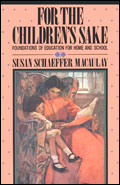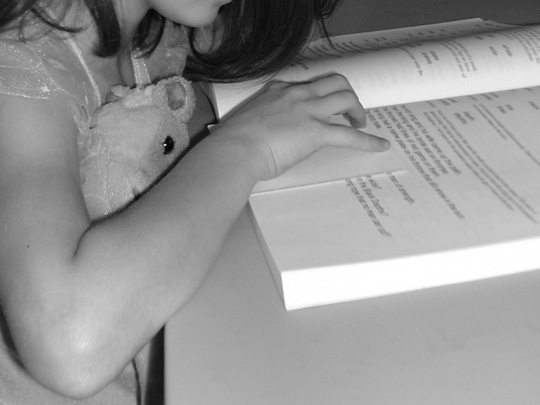For the Children’s Sake: I am, I can, I ought, I will
 For the Children’s Sake: Foundations of Education for Home and School, published in 1984, represents an argument to rethink educational priorities in light of the ideas of British educator Charlotte Mason (1842-1923). Written by Susan Schaeffer Macauley, daughter of Francis and Edith Schaeffer, this book has two purposes: to provide an educational vision, and to re-introduce Charlotte Mason to a more modern age.
For the Children’s Sake: Foundations of Education for Home and School, published in 1984, represents an argument to rethink educational priorities in light of the ideas of British educator Charlotte Mason (1842-1923). Written by Susan Schaeffer Macauley, daughter of Francis and Edith Schaeffer, this book has two purposes: to provide an educational vision, and to re-introduce Charlotte Mason to a more modern age.
In the homeschooling movement, Charlotte Mason’s ideas are probably more familiar now than they were when this book was written. I understand that her writings have been published more recently, with introductions by Ms. Macaulay. Ambleside Online is a great resource for further reading on Charlotte Mason’s perspective.
I was somewhat familiar with the curricular aims of Charlotte Mason, but this book presents more of her philosophy. I appreciate the practical understanding of children, the respect for them as “persons” and not mere vats to be filled with facts (or computers to be programmed). I appreciate the gentleness and thoroughness of Ms. Mason’s approach to the mind and character of young children. As a (neo)classical homeschooler, I share her love of history, and her belief that good books don’t need the help of a lot of commentary or simplification; let them speak for themselves. And I love the progression forecast in the motto of some of the British schools modeled on her principles: “I am, I can, I ought, I will.”
Reflecting on our own home education experiences so far, it was reassuring to see that we’ve done a lot “right” (as defined by this attractive philosophy) without consciously trying. We keep our lesson time to about half the day, and the girls have lots of free time to be imaginative. We observe nature around us, garden, explore. We read plenty of “living books” (including the Bible), listen to music, encourage artistic and verbal expression, pay attention to art.
It was good, too, to spend some time thinking about the art of diversion, mentioned here as a tactic in the training and management of children. I tend to be a confrontational person. It’s good to have a different strategy to turn to in difficult situations. When a child is struggling with her own nature in some way, sometimes it’s better to just defuse the situation and turn her to a different activity than to talk about it in a tense moment. It sounds simple, but it’s not my natural tendency.
In any case, for an appealing picture of what education of the whole person can be, this book is an excellent read. It brought me back to some basics that are good to remember this first week of school. It reminded me of the amazing blessing of homeschooling my daughters, so full of potential and mystery, so able and so eager. It’s a journey made with fear and trembling, but also with joy.


